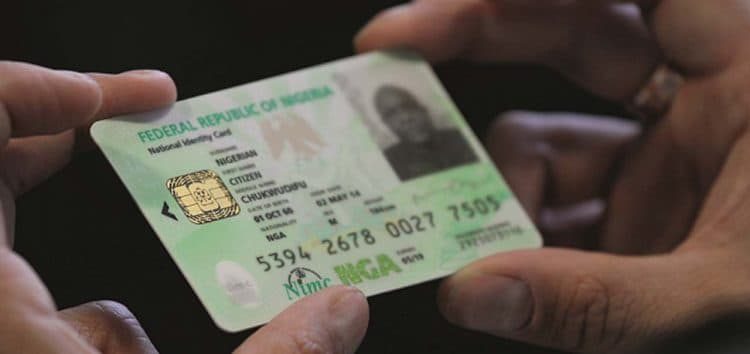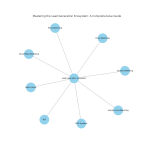In a shocking revelation that has sent ripples through Nigeria’s digital landscape, the National Identity Management Commission (NIMC) has uncovered a sophisticated network of websites illegally harvesting and trading citizens’ data. This discovery has sparked a nationwide conversation about digital security, privacy rights, and the urgent need for robust cybersecurity measures.
The Unveiling of a Digital Underworld
On June 24, 2024, NIMC’s cybersecurity team, led by Chief Information Security Officer Dr. Oluwaseun Adebayo, identified five websites engaged in illegally collecting and selling sensitive personal information. The implicated websites – idfinder.com.ng, Verify.Ng/sign-in, championtech.com.ng, trustyonline.com, and anyverify.com – were found to be operating elaborate schemes that duped unsuspecting citizens into divulging their data under the guise of official verification services.
Dr Adebayo stated in a press conference, “What we’ve uncovered is not just a simple case of data theft, but a complex operation that threatens the very fabric of our digital identity ecosystem. These websites have been masquerading as legitimate services, exploiting the trust of Nigerian citizens and potentially compromising millions of personal records.”
The Scale of the Breach
Initial investigations suggest that the breach could affect up to 20 million Nigerians, making it one of the largest data breaches in the country’s history. The compromised information includes:
1. National Identification Numbers (NIN)
2. Bank Verification Numbers (BVN)
3. International Passport details
4. Biometric data
5. Financial records
Cybersecurity expert further emphasized the gravity of the situation, Prof. Aisha Musa of the University of Lagos. “This isn’t just about stolen numbers,” she explained. “We’re looking at a potential cascade of identity theft, financial fraud, and even national security risks. The implications are far-reaching and could take years to fully address.”
Government Response and Legal Action
In response to this crisis, the Nigerian government has launched a multi-agency task force, combining resources from NIMC, the Economic and Financial Crimes Commission (EFCC), and the Nigerian Communications Commission (NCC). Minister of Communications and Digital Economy, Dr. Amina Abubakar, announced a series of emergency measures:
1. Immediate shutdown of the identified websites
2. Freezing of associated bank accounts
3. Issuance of international arrest warrants for the site operators
4. Implementation of enhanced verification protocols for all government digital services
“We are treating this as a matter of national security,” Dr. Abubakar declared. “The full force of the law will be brought to bear on these cybercriminals. We are also working closely with international partners to track down any overseas connections to this breach.”
The Legal Landscape and Future Implications
This incident has brought Nigeria’s cybersecurity laws under scrutiny. Legal analyst Chukwudi Okafor points out the need for stricter regulations: “Our current Cybercrimes Act of 2015 needs urgent revision to address the complexities of modern digital threats. We need to consider implementing laws similar to the EU’s GDPR to better protect our citizens’ data rights.”
In light of these events, the National Assembly has fast-tracked the Digital Rights and Freedom Bill, which aims to provide a comprehensive framework for data protection and digital rights in Nigeria.
Public Reaction and Citizen Awareness
The breach has sparked widespread concern among Nigerian citizens. Social media platforms have been flooded with anxious queries and calls for action. In response, NIMC has launched a nationwide awareness campaign titled “Guard Your Data, Guard Your Life.” The campaign includes:
1. TV and radio public service announcements
2. Social media educational content
3. Community outreach programs
4. A dedicated hotline for reporting suspicious online activities
Digital rights activist Funmi Iyanda emphasized the importance of public vigilance: “This breach is a wake-up call for every Nigerian. We must all become guardians of our digital identities. It’s not just about being careful online; it’s about demanding better protections from our government and service providers.”
Looking Ahead: Rebuilding Trust in the Digital Age
As Nigeria grapples with the fallout from this massive data breach, the incident serves as a stark reminder of the vulnerabilities in our increasingly digital world. NIMC has promised a complete overhaul of its data protection protocols and has invited international cybersecurity firms to audit its systems.
Dr. Adebayo concluded the press conference with a note of determination: “This breach, while severe, will not define us. It will be the catalyst for building a stronger, more secure digital Nigeria. We will emerge from this crisis with a renewed commitment to protecting our citizens’ digital rights and identities.”
As the investigation continues and new security measures are implemented, the eyes of the nation – and indeed the world – are on Nigeria. The coming months will be crucial in determining how effectively the country can respond to this digital crisis and set new standards for data protection in the African continent.















 and then
and then